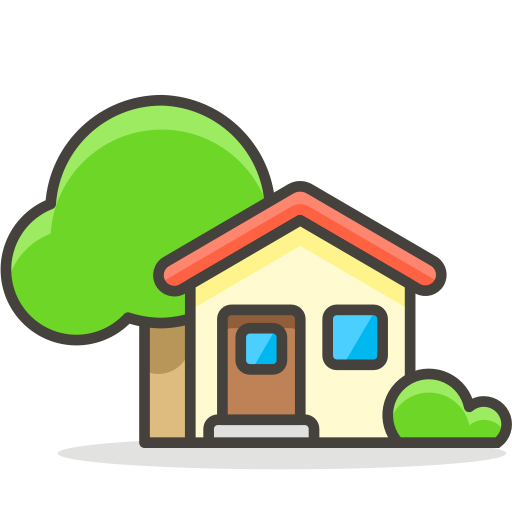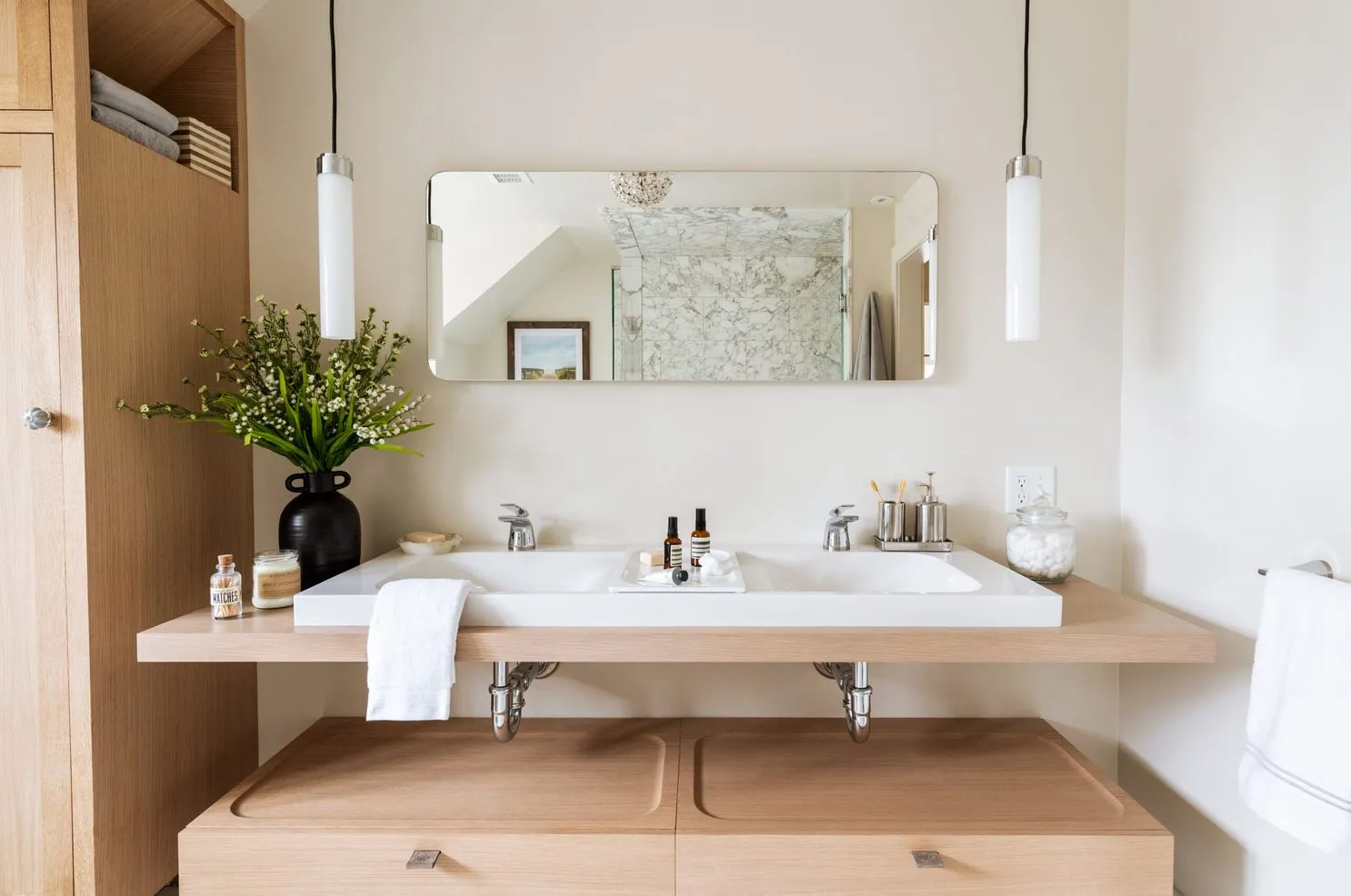Reinventing the Home — Why 2025 Demands Smarter, Bolder Improvements (full guide)
Introduction: The Shift from Cosmetic to Strategic
Gone are the days when home improvement was just about slapping on a new coat of paint or buying trendy furniture. In 2025, the rules have changed. The modern homeowner craves efficiency, sustainability, and design that elevates both daily function and long-term property value. This new era of home improvement is driven by smarter technologies, eco-conscious living, and creative reimagination of how spaces should work — not just look.
Whether you’re a seasoned renovator or a first-time fixer, this guide will decode the Golden Rules of what actually matters today. These aren’t just upgrades — they’re transformations that empower how you live.
Rule #1: Function Comes First – Form Follows Where It Should
The Function-Driven Philosophy
Design begins with how a space works. That means analyzing how your home serves your day — from your morning coffee routine to your Zoom meetings and family dinners. In 2025, functionality dictates the design language, ensuring that style doesn’t sabotage convenience.
Real-Life Application:
- Kitchen: Pull-out pantry shelves, motion-activated faucets, and appliance garages.
- Living Room: Built-in charging ports, hidden storage, and modular furniture.
- Bedroom: Under-bed drawers, integrated nightstand lighting, and closet optimization systems.
Pro Tip:
Use apps like Room Planner or Magicplan to virtually test new layouts before committing.
Rule #2: The Rise of the Eco-Conscious Renovator
Sustainability as a Default, Not a Feature
The eco-conscious homeowner isn’t a niche market anymore — it’s the norm. In 2025, materials and methods that reduce carbon footprint and promote energy savings are must-haves, not nice-to-haves.
Top Sustainable Upgrades:
- Low-VOC paints and finishes
- Recycled composite decking and siding
- LED smart lighting and daylight harvesting systems
- Water-saving toilets and greywater recycling systems
- Solar panels + battery storage
Table 1: Cost vs ROI of Sustainable Improvements (2025)
| Upgrade | Avg. Cost (USD) | Avg. ROI (%) | Bonus Benefit |
|---|---|---|---|
| Solar Panels + Battery | $18,000 | 80% | Energy independence, lower bills |
| Smart Thermostat | $250 | 90% | Up to 20% HVAC energy savings |
| Low-Flow Fixtures | $700 | 75% | Reduces water usage by up to 40% |
| Insulated Windows | $12,000 | 85% | Increased comfort + energy efficiency |
| Reclaimed Wood Flooring | $9,000 | 70% | Durable, eco-friendly, aesthetic |
Pro Tip:
Check your state’s green tax incentives — you might get 20–30% of your investment back.
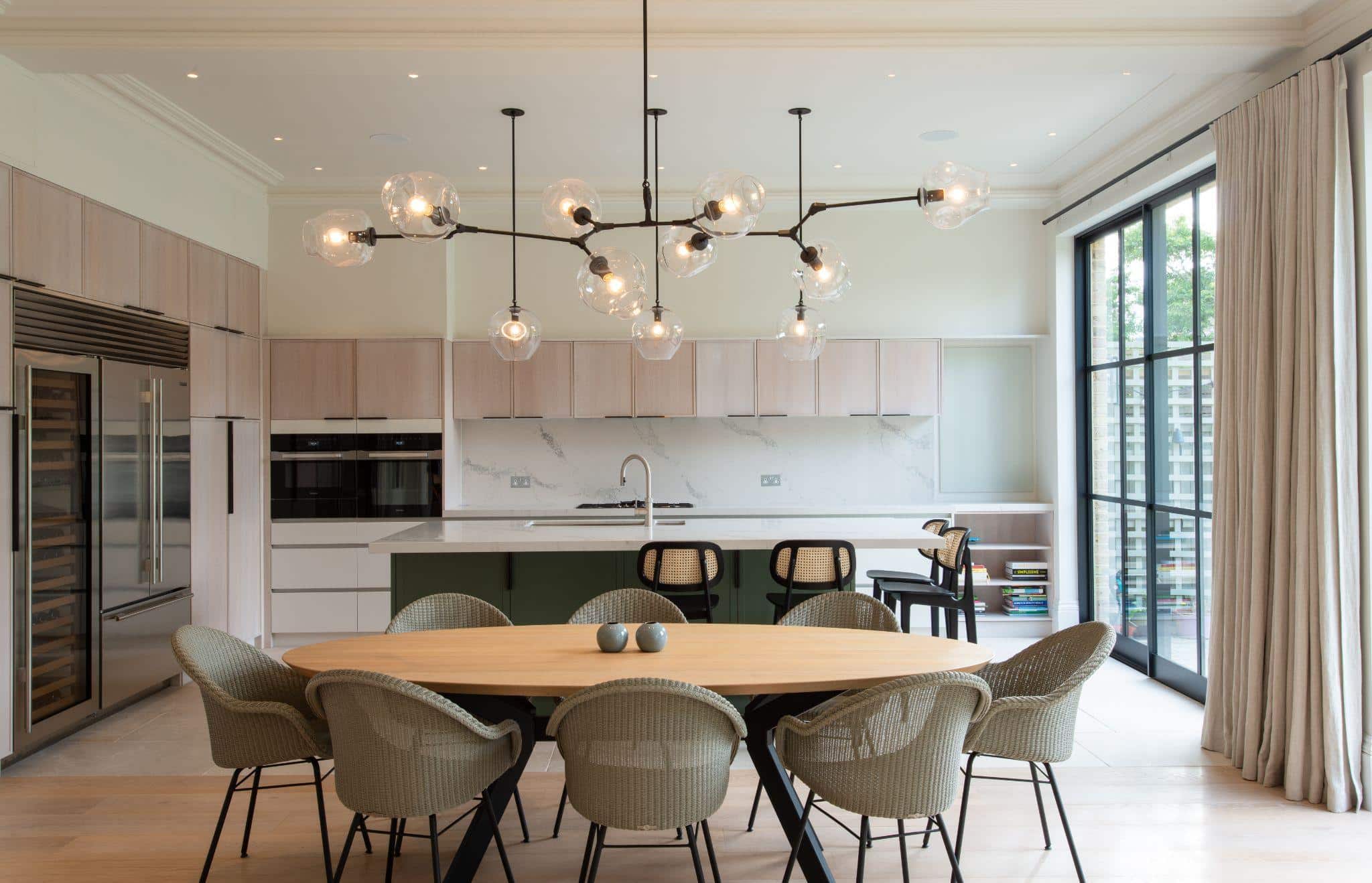
making a good home for us with best material
Rule #3: Technology Integration — Not Optional Anymore
The Smart Home Standard
2025 homes come wired with intelligence. That means lighting, temperature, security, and even appliances should sync with your phone or voice assistant. Think automation that saves time, increases safety, and personalizes your space to your lifestyle.
Essential Smart Integrations:
- Smart Thermostat (e.g., Nest, Ecobee)
- Voice-controlled lighting scenes
- App-monitored door locks and cameras
- Leak detectors in basements and under sinks
- Robot vacuums and mops
Expert Insight:
“Smart home tech is no longer a gimmick. It’s a core part of real estate valuation and daily living comfort.” — Stacey Graham, Realtor & PropTech Consultant
Rule #4: Adaptability Over Permanence
Designing for Change
People are moving less, but adapting more. That means your home must be flexible enough to serve evolving needs — home office, guest room, nursery, gym — sometimes all within one space.
Ideas That Work:
- Murphy beds + foldable desks
- Convertible dining-table workstations
- Sliding walls or room dividers
- Modular shelving + mobile storage units
Pro Tip:
Use furniture and fixtures that can be reconfigured without tools. Brands like IKEA, Floyd, and Burrow specialize in modularity.
Rule #5: Kitchens & Bathrooms Are Still Kings — But Now They’re Smarter
Kitchen Revolution
Your kitchen must multitask: it’s a prep station, social hub, coffee bar, and sometimes even a work desk. Here’s how to upgrade for the future:
- Touchless faucets
- Smart fridges with inventory scanning
- Induction cooktops with child locks
- Pantry verticalization + pull-out trays
Bathroom Innovation
From water-saving tech to spa-inspired sanctuaries:
- Smart mirrors with built-in lighting and defogging
- Bidet-integrated toilets
- Heated floors with programmable zones
- Motion-activated under-cabinet lights
Table 2: Kitchen & Bath Upgrades That Boost Resale Value (2025)
| Feature | Value Increase | Market Appeal | Notes |
| Smart Kitchen Appliances | High | Millennials & Gen Z | Expect tech-savvy buyers to prioritize |
| Walk-in Pantry or Butler’s Nook | Moderate | Growing Families | Adds function without square footage |
| High-efficiency Toilets | High | Eco-buyers | Big water bill savings |
| Spa Shower Experience | High | Luxury Market | Rainfall heads, steam, aromatherapy |
Rule #6: Don’t Ignore Outdoor Living
Your Yard Is Your Second Living Room
Especially post-2020, outdoor spaces became non-negotiable. In 2025, people want functional, aesthetic exteriors just as much as interiors.
Top Features to Invest In:
- Covered patios with ceiling fans
- Outdoor kitchens or BBQ stations
- Weatherproof LED lighting
- Low-maintenance landscaping (xeriscaping, turf)
Pro Tip:
Extend your Wi-Fi signal outdoors using mesh networks to enable music, TV, and smart device control.
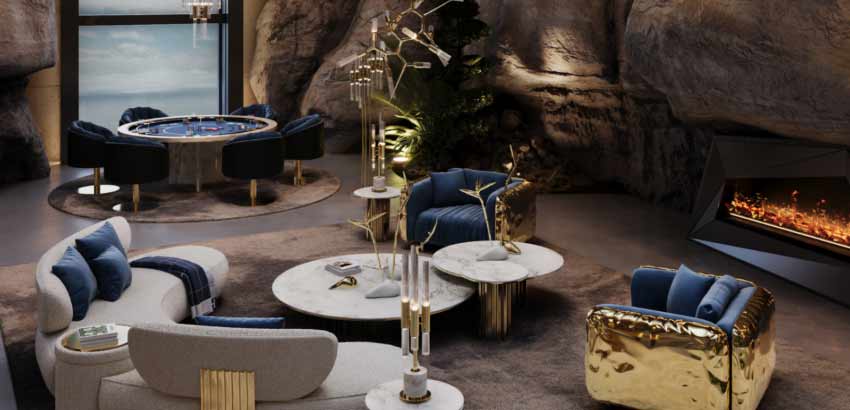
Sem-nome-house furnishing
Final Word for Part 1: Rethink the Foundation Before You Build the Castle
True home improvement in 2025 isn’t just about appearances. It’s a delicate choreography of smart function, adaptable design, and purposeful investment. Before choosing colors or finishes, zoom out — reimagine how your home should work for your life.
Stay tuned for Part 2: Legendary Projects That Transform Value, Comfort & Daily Living — where we go room by room with solutions that stand the test of time.
Legendary Projects That Transform Value, Comfort & Daily Living
Room-by-Room Mastery: Strategic Upgrades with Purpose
Let’s roll up our sleeves, step inside each zone of your home, and unleash the upgrades that don’t just impress — they revolutionize. Whether it’s the humble hallway or a full-scale primary suite, 2025 demands intentional enhancement with big returns — on comfort, utility, and property value.
The Kitchen: The Engine Room of the Home
Purpose-Driven Layouts
Your kitchen’s flow should feel like a dance — intuitive, obstacle-free, and empowering.
-
Zone cooking: Assign stations (prep, cook, clean, storage) to avoid backtracking.
-
Drawers over cabinets: Deep pull-outs make access ergonomic and efficient.
-
Smart storage: Vertical dividers, corner carousels, spice pull-outs, toe-kick drawers.
Tech to Add Now:
-
Smart ovens with voice control and remote preheat
-
Refrigerators that scan expiration dates and sync with your grocery list
-
Digital recipe projectors for backsplash-integrated cooking guidance
Design Tip:
Embrace a two-tone color palette — warm wood lowers + matte, muted uppers = visual interest and balance.
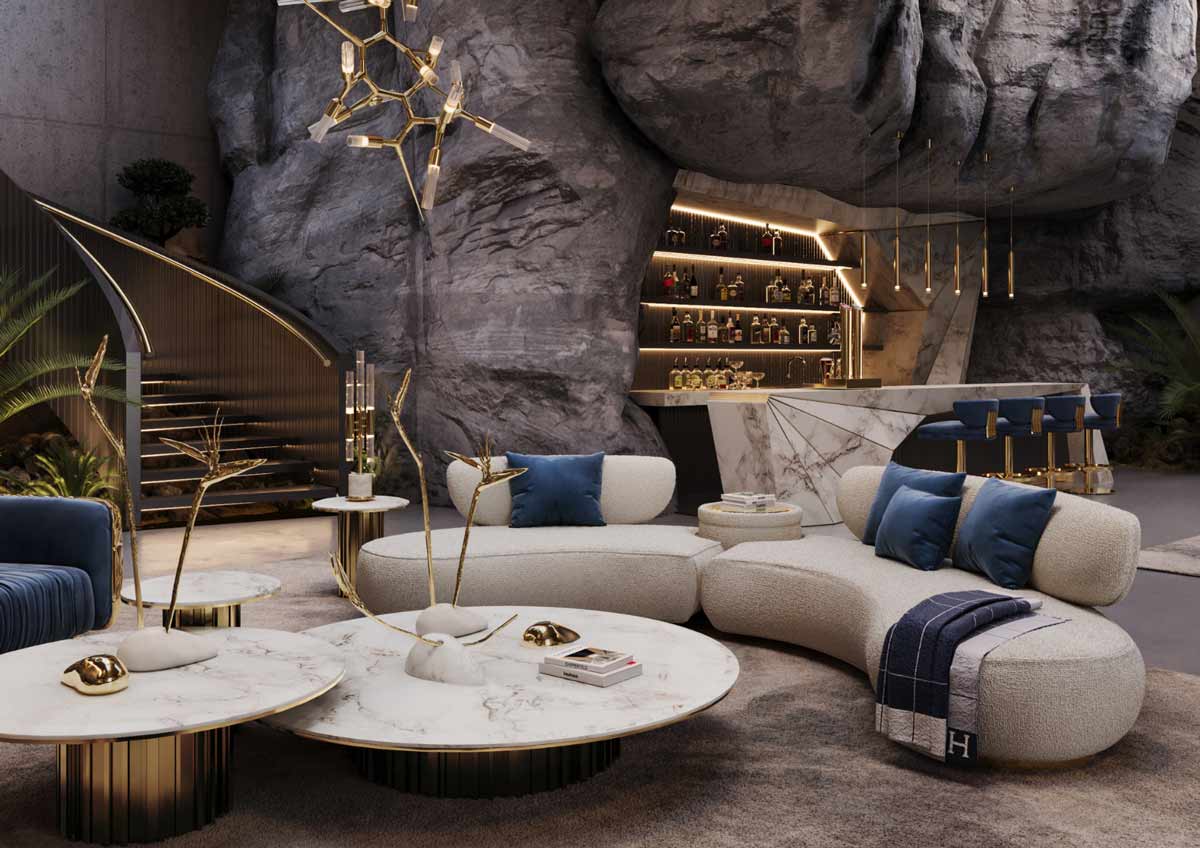
Sem-nome-house furnishing
The Bathroom: From Daily Necessity to Daily Luxury
Transforming Rituals Into Retreats
Bathroom upgrades aren’t just aesthetic — they’re quality-of-life enhancers.
-
Digital shower controls: Set your exact temperature and duration every morning.
-
Wall-integrated niches: Sleek storage without clutter.
-
Sensor-activated lights and exhausts: Hygiene meets hands-free ease.
Storage Secrets:
-
Mirror cabinets with interior charging
-
Vertical cabinets between wall studs
-
Vanity drawers with heat-resistant compartments (for curling irons, etc.)
2025 Spa Add-ons:
-
Chromatherapy lighting in the shower
-
Aromatherapy diffusers synced to wake/sleep routines
-
Self-cleaning bidets — now a global standard in high-end homes
The Living Room: A Sanctuary for Connection
Multifunction is the Magic Word
This space needs to flex: host parties, stream movies, be cozy, and feel calm.
-
Built-in tech zones: Discreet spaces for charging, gaming, and work.
-
Invisible cable systems: Wireless audio + clean walls = visual peace.
-
Lighting layers: Overhead, task, ambient, and accent — all smart-enabled.
Materials that Work in 2025:
-
Performance velvet: Luxuriously soft, stain-proof, kid/pet friendly.
-
Sustainable woods: Bamboo, ash, and reclaimed barnwood.
-
Smart glass windows: Tint on demand for privacy and UV protection.
Bedroom Retreats: Personalization Meets Optimization
Sleep Sanctuaries
In 2025, the bedroom is no longer just for sleeping — it’s your decompression chamber.
-
Mattresses with biometric sleep tracking
-
Circadian rhythm lighting synced to your sleep cycle
-
Soundproof paneling behind beds or sliding barn doors
Clutter-Free Storage Wins:
-
Drawer beds with built-in humidifiers or air purifiers
-
Double-duty headboards with bookshelf inserts
-
Rotating wardrobe closets (yes, like in movies — and real now)
Pro Design Move:
Use darker tones on walls to anchor calm, and light, breathable textures for linens to layer softness.

house full furnishing
Home Office: A Permanent Resident
Ergonomic & Energizing
Even hybrid workers need full-function setups now.
-
Sit/stand desks with app memory presets
-
Noise-canceling panels or desk pods
-
Smart whiteboards for real-time collaboration or vision boarding
Storage Boosters:
-
Wall-mounted modular organizers
-
Under-desk filing that swings out
-
LED-lit shelves for style and visibility
Tech Tips:
-
Install PoE (Power over Ethernet) ports for clean connections without chunky adaptors.
-
Consider dedicated HVAC zoning for your office — because comfort fuels productivity.
The Entryway: First Impressions + Daily Functionality
This overlooked zone is ground zero for stress or serenity.
Upgrade List:
-
Built-in cubbies with wireless charging
-
Wall-integrated air purifiers (great for allergy-prone guests)
-
Smart mirrors with weather + schedule readouts
Pro Touch:
Add motion-sensing lights and scent diffusers — set to welcome you home exactly how you like it.

Designing the Ultimate Chef’s Kitchen at Home
Basements, Attics & Garages: The Untapped Goldmines
The Flex Zone Strategy
Unused square footage? Not anymore. 2025’s magic word: conversion.
-
Basement gyms or game lounges
-
Attic creative nooks with skylights
-
Garage workstations + slat wall tool zones
Hidden Wins:
-
Install subfloor insulation in basements for year-round use.
-
Use solar-powered ventilation fans in attics for air circulation.
-
Convert garage overhead space into seasonal storage lofts.
Legendary Transformation Case Study
The Whitman House – Phoenix, AZ
Before: 1970s ranch with outdated rooms, cramped kitchen, and high energy bills.
After (2025 reno): Open-concept living, solar-paneled roof, 4-in-1 flex room, EV charging station, and xeriscaped backyard.
Result: 61% ROI on appraisal, $3,200/year energy savings, 5 offers within 24 hours of listing.
Home improvement in 2025 is not a trend — it’s a mission. One that takes every room, every corner, and every day into account. It’s about reclaiming time, elevating experiences, and creating spaces that serve — not just shine.
Legendary Projects That Transform Value, Comfort & Daily Living
Rule #7: Invest in Lighting That Works for You — Everywhere
Lighting is often overlooked but it shapes every moment at home — from waking up gently to setting the mood for dinner parties. In 2025, lighting is smart, layered, and fully customizable.
Key Lighting Strategies:
-
Layered lighting: Combine ambient, task, and accent lighting to suit all activities.
-
Smart bulbs and fixtures: Adjust brightness, color temperature, and schedules via apps or voice.
-
Circadian rhythm lighting: Use lights that change color and intensity throughout the day to support natural body clocks.
-
Outdoor lighting: Solar-powered path lights, motion-activated floodlights, and RGB mood lighting.
Table 3: Lighting Technologies & Their Benefits
| Technology | Benefits | Avg. Cost (USD) | ROI Potential |
|---|---|---|---|
| Smart LED Bulbs | Energy saving, customizable | $15–$50 per bulb | 75%+ energy savings |
| Circadian Rhythm Systems | Improved sleep, wellbeing | $200–$600 | Indirect health ROI |
| Motion-Activated Outdoor Lights | Security, convenience | $40–$150 | Adds resale value |
| Solar Garden Lights | Eco-friendly, no wiring | $20–$100 | Low maintenance |
Pro Tip:
Create lighting “scenes” for different moods — breakfast, work, relaxation, and entertaining. Use apps like Philips Hue or LIFX for easy setup.
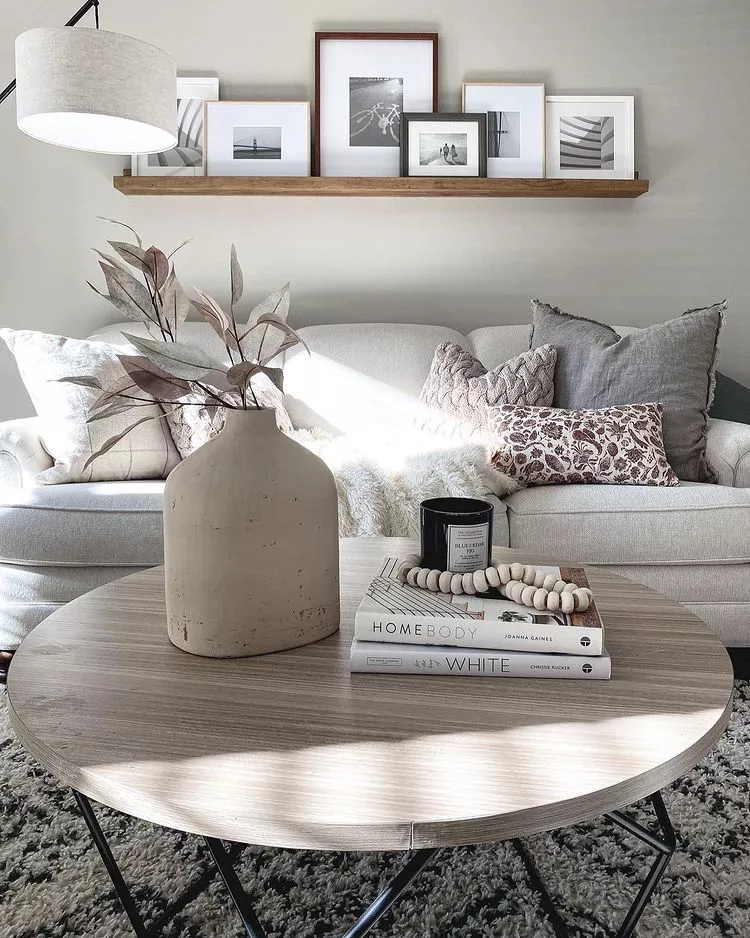
my dreamy house with white theme
Rule #8: Smart Security — Peace of Mind Is Priceless
With smart homes on the rise, security systems must keep pace. In 2025, security isn’t just about alarms — it’s about seamless, intuitive protection integrated into your lifestyle.
Smart Security Essentials:
-
AI-powered cameras: Facial recognition, package detection, and suspicious activity alerts.
-
Smart doorbells: Video, two-way talk, and delivery notifications.
-
Automated locks: Temporary access codes for guests and service providers.
-
Integrated alarms: Sync with phones, police, or monitoring services.
Expert Insight:
“A well-integrated security system is the new front door. It boosts peace of mind and property value.” — Raj Patel, Security Tech Specialist
Rule #9: Energy Management — Control Your Consumption
Homeowners in 2025 don’t just want to save energy, they want to master it. Modern energy management systems provide detailed insights, automation, and cost-saving control.
Energy Management Tools:
-
Smart meters and real-time monitoring
-
Automated appliance scheduling
-
Solar power integration with battery storage
-
Energy-efficient HVAC with zoning controls
Table 4: Energy Management Devices & ROI
| Device | Cost (USD) | Avg. Energy Savings | Payback Period |
|---|---|---|---|
| Smart Meter + App | $100–$300 | 10–15% savings | 1–2 years |
| Solar + Battery Storage | $15,000–$20,000 | 60–80% savings | 7–10 years |
| Zoning Thermostats | $250–$500 | 20–25% savings | 2–3 years |
Pro Tip:
Pair energy management with solar and smart appliances for maximum efficiency and savings.
Rule #10: The Power of Personalized Spaces
Finally, your home should feel like a reflection of you — your tastes, routines, and aspirations. Customizable spaces increase comfort and connection.
Ways to Personalize:
-
Custom-built closets and storage tailored to your lifestyle
-
Dedicated hobby or wellness rooms
-
Smart furniture that adapts to your preferences
-
Art and decor that tell your story
Final Thoughts: Your 2025 Home — Smarter, Greener, More You
The 2025 home isn’t just a place — it’s an experience designed around your life, values, and future. The Golden Rules are your blueprint to create a space that’s efficient, adaptable, and full of smart surprises.
Comprehensive Home Improvement Checklist for 2025
1. Planning & Design
-
Define your goals: comfort, value, sustainability, tech integration
-
Create a room-by-room priority list
-
Consult a professional designer/architect for complex upgrades
-
Research local codes & permits if structural changes are involved
-
Set your budget with contingency (typically +15–20%)
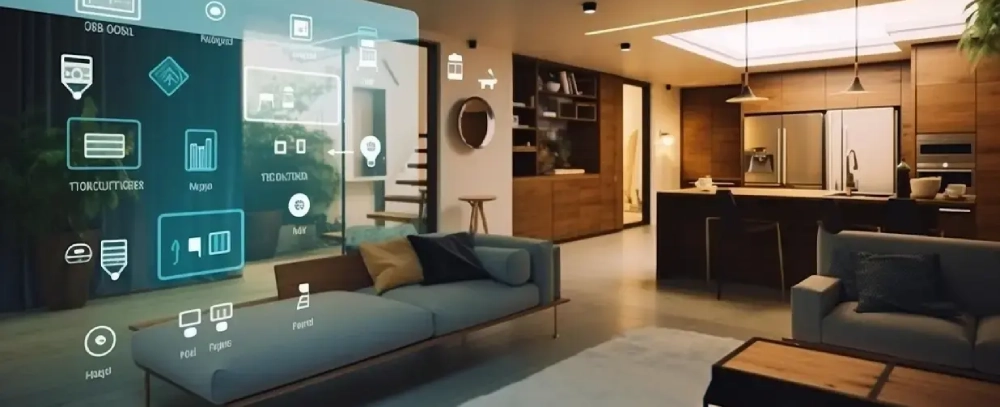
Smart-Home-2025
2. Kitchen Upgrades
-
Optimize layout for zone cooking (prep, cook, clean, store)
-
Choose drawers over cabinets for better access
-
Install smart appliances (oven, fridge, recipe projector)
-
Select durable, easy-clean surfaces and two-tone palettes
-
Plan smart storage: pull-outs, spice racks, vertical dividers
3. Bathroom Luxuries
-
Upgrade to digital shower controls
-
Install wall niches and sensor lighting/exhausts
-
Include smart mirror cabinets with charging ports
-
Add chromatherapy lighting and aromatherapy diffusers
-
Consider self-cleaning bidets or high-tech toilets
4. Living Room Enhancements
-
Integrate built-in tech charging and cable management
-
Layer lighting with smart controls
-
Choose stain-resistant, sustainable materials
-
Install smart glass windows for privacy and UV protection
5. Bedroom Sanctuaries
-
Select biometric or sleep-tracking mattresses
-
Use circadian lighting synced to sleep cycles
-
Add soundproofing elements
-
Design clutter-free, dual-purpose storage solutions
6. Home Office Setup
-
Install ergonomic sit/stand desks
-
Add noise-canceling panels or pods
-
Use smart organizers and LED shelves
-
Ensure wired and wireless connectivity with PoE ports
7. Entryway Functionality
-
Build cubbies with wireless charging
-
Add wall-integrated air purifiers
-
Install smart mirrors with schedules & weather updates
-
Use motion sensors for lights and scent diffusers
8. Basement, Attic & Garage
-
Insulate basements and improve ventilation in attics
-
Convert spaces for gym, lounge, or creative studio
-
Add overhead storage lofts in garage
-
Install solar-powered ventilation or lighting if possible
9. Lighting Solutions
-
Layer ambient, task, and accent lighting
-
Use circadian rhythm and smart bulbs
-
Add motion-activated outdoor lighting
-
Program lighting scenes for different moods
10. Security Integration
-
Install AI-powered cameras and smart doorbells
-
Use automated locks with guest access codes
-
Sync alarms with your smartphone and monitoring services
-
Consider professional security consultation
11. Energy Management
-
Install smart meters and real-time monitoring apps
-
Schedule appliances for off-peak energy use
-
Integrate solar power with battery storage
-
Use zoning thermostats and energy-efficient HVAC systems
12. Personalization & Final Touches
-
Customize closets, storage, and hobby spaces
-
Choose smart furniture adapted to lifestyle needs
-
Display personal art and decor
-
Regularly review and upgrade technology and systems
Resource Guide: Tools, Products & Experts
Smart Home & Appliances
-
Philips Hue / LIFX — Best for customizable lighting
-
Samsung SmartThings / Google Nest Hub — Smart home control hubs
-
June Oven / Tovala — Smart kitchen appliances
-
Ring / Arlo / Nest — Top smart security cameras and doorbells
Design & Planning
-
Houzz / Pinterest — Idea boards and inspiration
-
SketchUp / Roomstyler — Free room design software
-
Angi (formerly Angie’s List) — Verified local contractors
-
HomeAdvisor — Connects with vetted professionals
Energy & Sustainability
-
Tesla Powerwall / LG Chem — Home battery storage
-
Sense Energy Monitor — Appliance energy usage tracking
-
Energy Star.gov — Energy-efficient product certification
-
Local utility providers — Often provide rebates on solar and smart thermostats
Ergonomics & Wellness
-
Herman Miller / Steelcase — High-quality ergonomic furniture
-
Withings Sleep / Eight Sleep — Sleep tracking mattresses and devices
-
Calm / Headspace Apps — Mental wellness apps with ambient sounds and guided routines
DIY & Maintenance
-
Home Depot / Lowe’s — Tools, materials, and DIY resources
-
YouTube Channels:
-
This Old House
-
HouseImprovements
-
DIY Creators
-
Final Innovations and AI Solutions for Your 2025 Home Makeover
1. AI-Driven Home Automation
-
AI Voice Assistants with Context Awareness: Beyond Alexa or Google Assistant—AI that learns your routines and preferences, proactively adjusting lighting, temperature, and even music to your mood and time of day.
-
Predictive Maintenance: AI systems analyze appliance performance data and notify you before something breaks, scheduling repair or ordering parts automatically.
-
Energy Optimization AI: Smart home hubs that use weather forecasts, electricity price fluctuations, and your daily schedule to minimize energy use without sacrificing comfort.
2. Smart Kitchen Innovations
-
AI Recipe Assistants: Apps connected to your fridge inventory that suggest meals based on what you have, your dietary needs, and seasonal produce.
-
Robotic Kitchen Helpers: Emerging robots that assist with chopping, stirring, or even plating dishes, letting you focus on creativity.
3. Bathroom & Wellness AI
-
Health Monitoring Mirrors: AI-enabled mirrors that analyze your skin, detect health anomalies, and provide personalized skincare tips.
-
Smart Toilets with Wellness Tracking: Toilets that monitor hydration, sugar levels, and more, syncing data to your health apps.
-
Voice-Activated Aromatherapy: AI adjusts scents based on your stress or energy levels throughout the day.
4. AI in Security and Safety
-
Facial Recognition and Behavior Analysis: Cameras that not only recognize family members but also detect unusual behavior and alert you or authorities.
-
AI Fire & Leak Detection: Sensors that learn normal home patterns and immediately flag anomalies, reducing false alarms.
5. Personalized AI in Living & Bedrooms
-
Adaptive Lighting & Soundscapes: AI curates lighting and sound to improve focus, relaxation, or sleep, responding in real time to biometric feedback.
-
Sleep Coaches: AI analyzing sleep patterns and environmental factors, providing actionable advice to improve rest.
6. AI in Energy & Environment
-
Dynamic Solar Management: AI systems that adjust solar panel angles and battery usage for maximum efficiency.
-
Indoor Air Quality AI: Sensors and purifiers that adapt filtration based on real-time detection of allergens, VOCs, and CO2 levels.
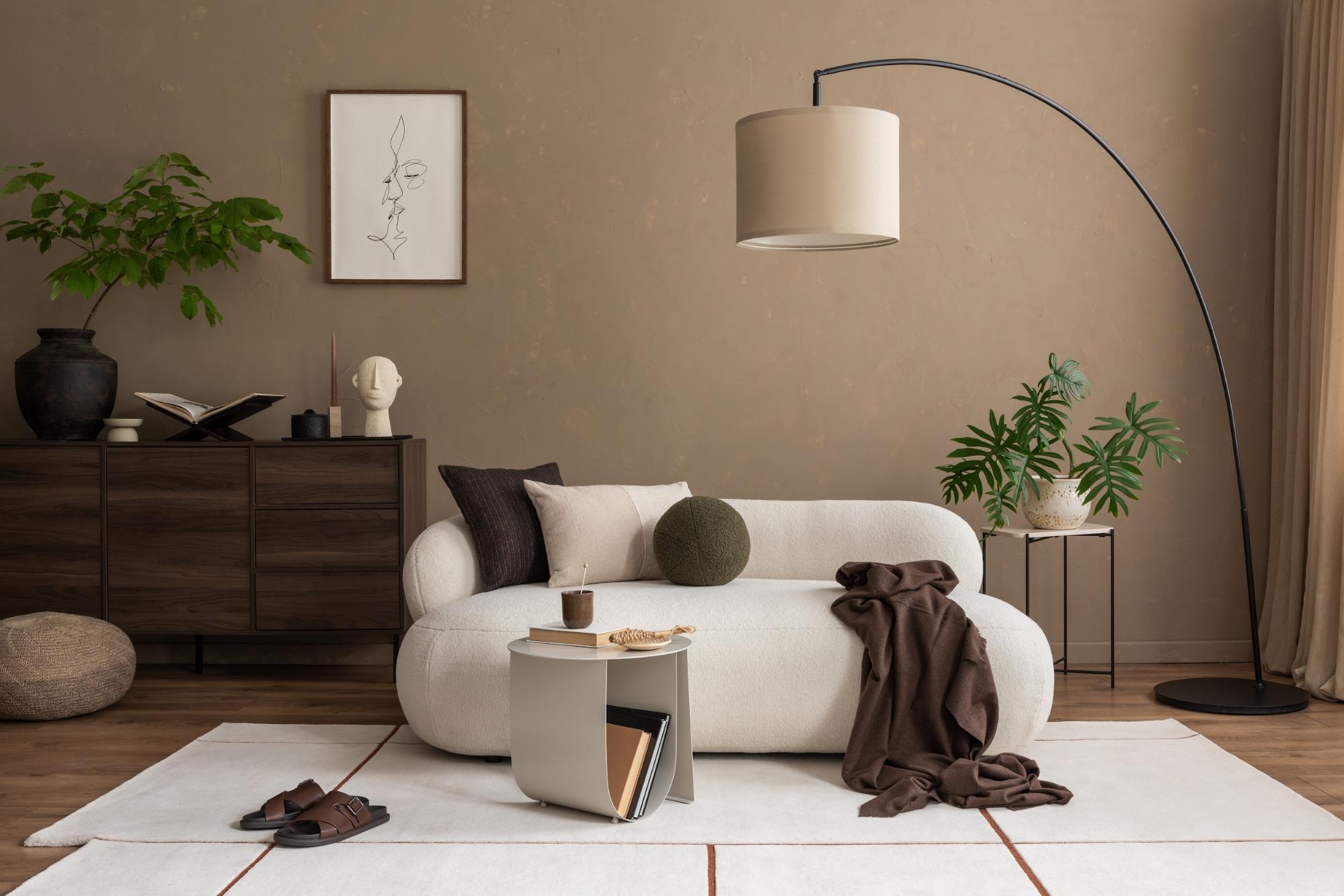
Rounded-Furniture-Creates-Soft-Elegance
Summary Table: Key Innovations & Practical Applications
| Category | Innovation/AI Solution | Benefits | Implementation Tips |
|---|---|---|---|
| Home Automation | Context-aware AI assistants | Personalized, proactive comfort | Use hubs like Google Nest or Amazon Echo |
| Predictive Maintenance | AI appliance health monitoring | Avoid breakdowns, save money | Integrate smart plugs and sensors |
| Energy Management | AI energy optimization & solar dynamic management | Lower bills, eco-friendly living | Sync with local grid and solar systems |
| Kitchen | AI recipe assistants & robotic helpers | Waste reduction, time-saving | Connect smart fridge and IoT kitchen devices |
| Bathroom | Health monitoring mirrors & smart toilets | Health insights, enhanced wellness | Partner with health app ecosystems |
| Security | Facial recognition & behavior analysis AI | Enhanced safety, reduced false alarms | Use encrypted, GDPR-compliant systems |
| Living & Bedrooms | Adaptive lighting & soundscapes, sleep coaches | Better rest, mood regulation | Combine wearable data with smart devices |
| Air Quality | AI-controlled purifiers & sensors | Healthier environment | Continuous monitoring & alerts |
1. Detailed Timeline to Integrate AI Home Solutions (12-Month Plan)
| Month | Focus Area | Tasks & Milestones | Notes |
|---|---|---|---|
| 1–2 | Foundation & Network Setup | – Upgrade home Wi-Fi to mesh system for robust smart device connectivity | Critical for seamless AI device operation |
| – Install smart home hub (Google Nest Hub Max, Amazon Echo Show) | Centralizes control | ||
| 3–4 | Smart Lighting & Climate | – Install AI-powered smart thermostats (Nest, Ecobee) | Optimize energy & comfort |
| – Add adaptive smart lighting (Philips Hue, LIFX) | Mood, efficiency, security | ||
| 5–6 | Kitchen AI Integration | – Smart fridge & pantry monitoring system (Samsung Family Hub, LG ThinQ) | Inventory, meal planning |
| – Introduce robotic kitchen assistants (Moley Robotics, Suvie) | Automate prep tasks | ||
| 7–8 | Bathroom & Wellness Tech | – Install health monitoring smart mirrors (CareOS, HiMirror) | Skin & wellness tracking |
| – Upgrade to smart toilets (TOTO Neorest, Kohler Veil) | Hygiene & health monitoring | ||
| 9 | Security & Safety | – Deploy AI facial recognition cameras (Ring, Nest Cam IQ) | Real-time threat detection |
| – Add leak/fire detection AI sensors (Flo by Moen, Fibaro) | Prevent costly damage | ||
| 10 | Living & Bedrooms | – Set up adaptive lighting and soundscape systems (Nanoleaf, Bose) | Sleep & focus enhancement |
| – Integrate sleep coaching apps (SleepScore Max, Eight Sleep) | Healthier rest | ||
| 11 | Energy & Environment | – Install AI-driven solar management (Tesla Solar Roof, SunPower) | Maximize green energy |
| – Add AI-controlled air purifiers & sensors (Dyson Pure Cool, Molekule) | Indoor air quality | ||
| 12 | Final Testing & Optimization | – Full-system integration & automation routines | Test for seamless interaction & efficiency |
| – Set up notifications, personalized schedules, and remote monitoring | Enjoy your smart sanctuary! |
2. Top Brands & Products for 2025 AI Home Solutions
| Category | Brand/Model | Why It’s Best | Price Range (USD) |
|---|---|---|---|
| Smart Home Hub | Google Nest Hub Max | Voice control, AI routines, video calls | $230–$300 |
| Amazon Echo Show 15 | Large display, smart home control | $250–$320 | |
| Smart Thermostat | Nest Learning Thermostat | Self-learning, energy savings | $250–$280 |
| Ecobee SmartThermostat | Remote sensors, voice control | $250–$300 | |
| Smart Lighting | Philips Hue | Widely compatible, adaptive scenes | $50–$200 per kit |
| LIFX | High brightness, vivid colors | $60–$250 per kit | |
| Smart Kitchen Fridge | Samsung Family Hub | Inventory tracking, recipe suggestions | $3,000–$4,500 |
| LG ThinQ | AI-powered food management | $3,000–$4,000 | |
| Robotic Kitchen Helper | Moley Robotics Kitchen Robot | Full cooking automation | $15,000+ |
| Suvie Multicooker | Prep, cook, refrigerate all-in-one | $1,000–$1,500 | |
| Health Monitoring Mirror | HiMirror | Skin analysis, wellness tips | $300–$500 |
| CareOS | Smart mirror with AI skincare coaching | $400–$600 | |
| Smart Toilet | TOTO Neorest | Bidet, self-cleaning, health sensors | $6,000+ |
| Kohler Veil | Sleek design, AI hygiene features | $5,000+ | |
| Security Cameras | Ring Spotlight Cam | AI motion detection, facial recognition | $150–$200 |
| Nest Cam IQ | Advanced AI alerts | $200–$250 | |
| Leak & Fire Sensors | Flo by Moen | Smart water shutoff, leak detection | $350–$500 |
| Fibaro Flood Sensor | Multi-sensor for leaks, floods | $100–$150 | |
| Adaptive Lighting & Sound | Nanoleaf Light Panels | Customizable light & music syncing | $150–$300 |
| Bose Smart Soundbar | AI soundscapes, voice assistant | $400–$700 | |
| Sleep Coaching | SleepScore Max | AI sleep analytics | $150–$200 |
| Eight Sleep Pod | Temperature control, sleep coaching | $2,000+ | |
| Solar Management | Tesla Solar Roof | Aesthetic, efficient solar power | $40,000+ |
| SunPower Equinox System | High efficiency panels, AI optimization | $25,000+ | |
| Air Quality Purifiers | Dyson Pure Cool | AI sensors, automatic purification | $400–$600 |
| Molekule Air Purifier | Advanced filtration & AI sensors | $700–$1,000 |
3. Customized Budget Planner (Estimate for Mid-to-High Range Home, USD)
| Category | Estimated Cost | Notes |
|---|---|---|
| Network & Smart Hub Setup | $800 | Mesh Wi-Fi system + smart hub |
| Smart Thermostat & Lighting | $1,200 | Thermostat + full home lighting upgrade |
| Smart Kitchen AI Devices | $5,000 | Fridge + robotic helper |
| Bathroom AI & Wellness Tech | $7,000 | Smart mirror + smart toilet |
| Security & Leak Sensors | $1,200 | Cameras + sensors |
| Living Room Adaptive Tech | $1,000 | Lighting + sound system |
| Sleep Coaching Devices | $2,200 | Sleep pod or devices |
| Solar & Energy Management | $30,000 | Solar roof + battery + AI controller |
| Air Quality Systems | $1,000 | AI purifiers and sensors |
| Total Estimated Investment | ~$49,400 |
Stepwise DIY vs Professional Install Guide
| Phase (Months) | Technology | DIY Feasibility | Pro Installation Recommended When | Tips for Success |
|---|---|---|---|---|
| 1–2: Network & Hub Setup | Mesh Wi-Fi systems, Smart hubs | Mostly DIY (plug & play, apps guided) | Complex home wiring or large properties | Choose devices with good app support, do speed tests |
| 3–4: Thermostats & Lighting | Smart thermostats & smart bulbs | DIY-friendly; most install with app instructions | HVAC integration or whole-home rewiring | Calibrate thermostat sensors; test bulbs in zones |
| 5–6: Kitchen AI Devices | Smart fridge (plug and play), robotic helpers | Fridge is DIY; robotic kitchens require pros | Complex plumbing or robotic installation | Read manuals carefully; consult pros for robotic helpers |
| 7–8: Bathroom Wellness Tech | Smart mirrors, smart toilets | Mirrors can be DIY; toilets usually pro install | Plumbing modifications, electrical connections | Hire licensed plumber/electrician for toilets |
| 9: Security & Safety | AI cameras & leak/fire sensors | Cameras mostly DIY; sensors DIY or pro | Complex home security integrations | Secure camera placements; test alerts |
| 10: Living Room Tech | Adaptive lighting & sound systems | DIY, many plug-and-play products | Custom soundproofing or wiring | Sync lighting/music; place speakers for best sound |
| 11: Energy & Environment | Solar panels, air purifiers | Air purifiers DIY; solar panels pro | Roof installation, electrical system integration | Use certified solar installers; check air purifier filters |
| 12: Final System Integration | Automation routines, schedules | Advanced smart home automation often needs pros | Integrating multiple systems for seamless AI interaction | Use platforms like SmartThings, Apple HomeKit |
ROI Analysis on AI Home Investments
| Category | Key ROI Factors | Estimated ROI Timeline | Notes |
|---|---|---|---|
| Network & Hub Setup | Foundation for all AI; improves device efficiency | Immediate to 6 months | Increases home value by enabling smart upgrades |
| Smart Thermostats & Lighting | Energy savings of up to 15-20% on heating, cooling, lighting | 1–2 years | Utility bill reduction + environmental impact |
| Kitchen AI Devices | Reduced food waste, meal planning efficiency | 2–3 years | Savings from better grocery management & cooking time |
| Bathroom Wellness Tech | Health benefits, increased home luxury value | 3–5 years | Potential insurance discounts, higher resale value |
| Security & Safety | Reduced theft/fire risks; insurance savings | Immediate to 1 year | Lower insurance premiums and peace of mind |
| Living Room Adaptive Tech | Enhanced well-being, sleep quality improvements | 1–2 years | Health-related savings, productivity boost |
| Energy & Environment | Reduced energy costs, green home incentives | 5–7 years | Tax credits, rebates, and long-term cost savings |
| Air Quality Systems | Improved health, fewer medical expenses | 1–3 years | Long-term health cost reduction |
AI-Powered Home Upgrade Budget Planner 2025
| Phase | Key Upgrades & Products | Estimated Cost Range (USD) | Notes & Savings Potential | Priority Level |
|---|---|---|---|---|
| 1. Network & Hub Setup | Mesh Wi-Fi system (Google Nest Wifi Pro, Eero Pro 6E), Smart Hub (Samsung SmartThings) | $400 – $700 | Essential foundation, improves all device reliability and performance | ★★★★★ (High) |
| 2. Smart Thermostats & Lighting | Nest Learning Thermostat, Philips Hue bulbs, LIFX bulbs | $300 – $600 | Energy savings up to 10-15% on heating/cooling + flexible lighting | ★★★★★ (High) |
| 3. Kitchen AI Devices | Samsung Family Hub Fridge, June Oven, Robotic Assistants | $3,000 – $8,000+ | Convenience, food waste reduction, cooking efficiency (ROI over 3-5 yrs) | ★★★★☆ (Medium-High) |
| 4. Bathroom Wellness Tech | Kohler Verdera Smart Mirror, Toto Neorest Smart Toilet, Heated Floors | $2,000 – $6,000 | Health and comfort upgrade; water savings with smart toilets | ★★★★☆ (Medium) |
| 5. Security & Safety Systems | Ring Video Doorbell Pro 2, Arlo Pro 5 Cameras, Nest Protect, Flood Sensors | $800 – $2,000 | Home protection reduces risk, insurance savings possible | ★★★★★ (High) |
| 6. Living Room Tech | Philips Hue Play, Sonos Speakers, Nanoleaf Panels | $600 – $1,500 | Enhances lifestyle; mood and sound control | ★★★☆☆ (Medium) |
| 7. Energy & Environment Systems | Tesla Solar Panels, IQAir Purifiers | $10,000 – $25,000+ | Major investment, substantial long-term savings & healthier air | ★★★☆☆ (Long Term) |
| 8. Final System Integration | Smart home platform subscriptions, automation setup fees | $100 – $300 | Smooth operation, security, and ease of use | ★★★★★ (Essential) |
Summary & Recommendations
| Total Estimated Investment | $17,200 – $44,700+ |
|---|---|
| Key Savings Areas: | Energy (thermostats, solar), water (smart toilets), security (insurance) |
| Suggested Immediate Priorities: | Network & Hub, Thermostats & Lighting, Security Systems |
| Investment Tip: | Start with core infrastructure (network + smart hub), then phase in high-impact upgrades for savings & comfort. |
How to Use This Budget Planner
-
Step 1: Assess your current home tech status — maybe you already have some components, which reduces cost.
-
Step 2: Prioritize high ROI and essential upgrades first (network, security, thermostat).
-
Step 3: Plan phases across months or years to spread cost and complexity.
-
Step 4: Track your spending vs. budget monthly to stay on target.
-
Step 5: Monitor energy/water bills and insurance after upgrades to quantify savings.
Top Recommended Brands & Products in 2025
| Category | Top Brands | Signature Products | Estimated Price Range |
|---|---|---|---|
| Smart Thermostats | Nest (Google), Ecobee, Honeywell | Nest Learning Thermostat Gen 3, Ecobee SmartThermostat | $200–$400 |
| Smart Security | Arlo, Ring, Nest Secure | Arlo Pro 4, Ring Video Doorbell Pro 2, Nest Cam IQ | $300–$1500 |
| Smart Lighting | Philips Hue, Lutron, Nanoleaf | Philips Hue Starter Kit, Lutron Caseta Wireless | $150–$800 |
| Leak Detectors | Flo by Moen, Phyn, LeakSmart | Flo Smart Water Monitor, Phyn Plus | $150–$350 |
| Smart Appliances | Samsung, LG, Bosch | Samsung Family Hub Fridge, LG ThinQ Oven | $2000–$8000 |
| Robot Cleaners | iRobot, Roborock, Ecovacs | iRobot Roomba i7+, Roborock S7 | $300–$1000 |
| Air Quality Monitors | Awair, Foobot, IQAir | Awair Element, IQAir AirVisual Pro | $150–$300 |
| Voice Assistants | Amazon, Google, Apple | Echo Dot, Google Nest Mini, Apple HomePod Mini | $100–$200 |
Custom Budget Planner (Example)
| Item/Category | Budgeted Amount | Actual Cost | Notes |
|---|---|---|---|
| Smart Thermostat | $350 | Include installation fees if needed | |
| Smart Security Setup | $1000 | Cameras + smart locks | |
| Smart Lighting System | $500 | Bulbs + dimmers | |
| Leak Detection Sensors | $250 | Multiple sensor units | |
| Smart Appliances Upgrade | $5000 | Fridge + oven + dishwasher | |
| Robot Vacuum & Mop | $700 | Consider subscription plans | |
| Air Quality Monitoring | $200 | Purchase and setup | |
| Voice Assistant Devices | $150 | Integration with other devices | |
| Total Estimated Budget | $8650 |
Recommended Resources & Tools
| Purpose | Resource | Link/Details |
|---|---|---|
| Room Planning & Visualization | Room Planner App | roomplanner.com |
| Budget & Project Management | Trello / Asana | trello.com / asana.com |
| Sustainable Upgrades Info | Energy Star & DOE Websites | energystar.gov / energy.gov |
| Smart Home Tech Reviews | CNET Smart Home Section | cnet.com/topics/smart-home/best-smart-home-devices/ |
| Local Contractor Finder | Angie’s List / HomeAdvisor | angieslist.com / homeadvisor.com |
Video:
